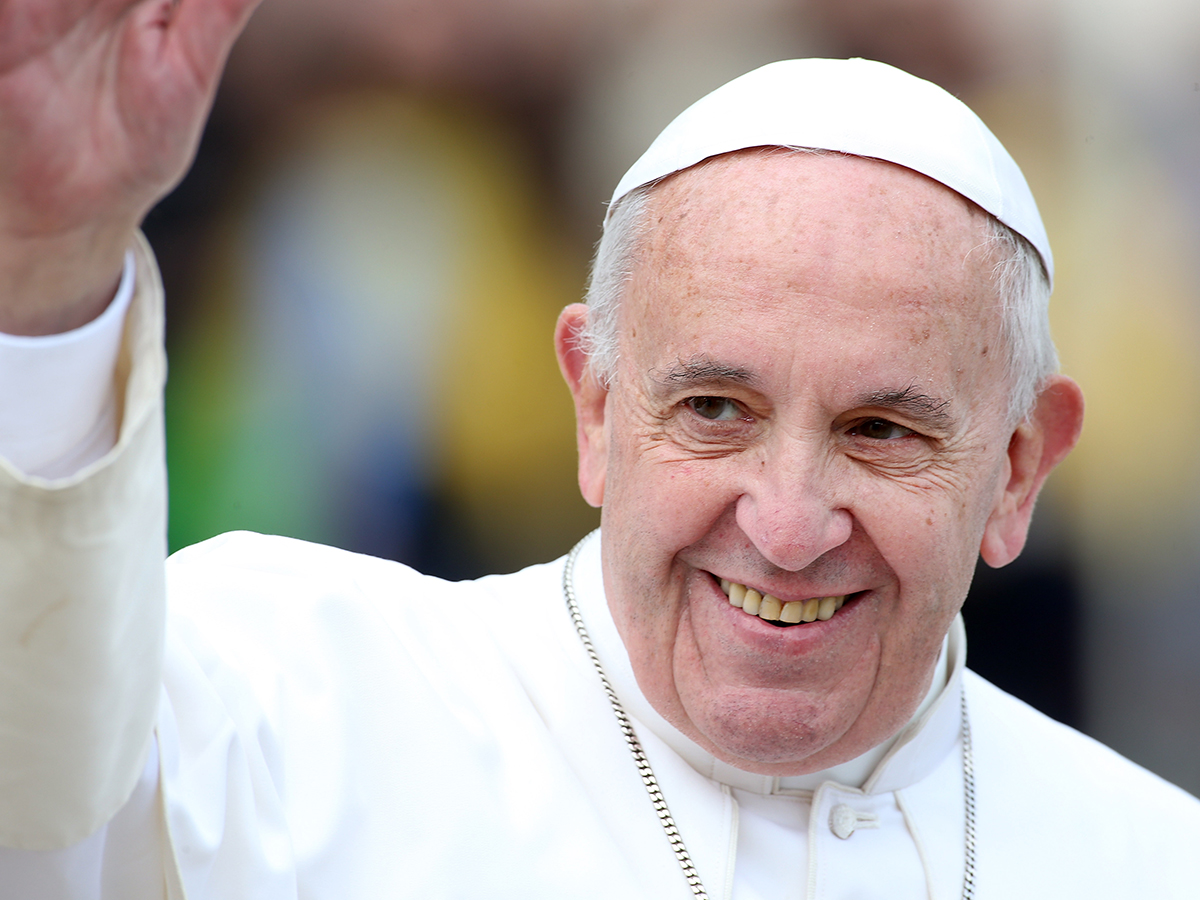Pope Urges Solidarity and Compassion in 1st-Ever Papal TED Talk

The pope urged compassion alongside progress in a surprise TED Talk shown in Vancouver, British Columbia, yesterday (April 25).
In the first-ever TED Talk by a pope, Pope Francis urged a science- and tech-heavy audience to cultivate love and tenderness.
"How wonderful would it be if the growth of scientific and technological innovation would come along with more equality and social inclusion," Francis said. "How wonderful would it be, while we discover faraway planets, to rediscover the needs of the brothers and sisters orbiting around us." [History's 10 Most Intriguing Popes]
A talk in the making
The prerecorded talk was shown at TED2017, this year's meeting of the nonprofit organization that spreads ideas about technology, entertainment and design (among other topics) through presentations and conferences. According to TED's international curator, Bruno Giussani, it took more than a year to arrange the talk.
"When I first approached the Vatican, it's fair to say that not many there knew of TED. So there was a lot of explaining to do," Giussani said in a TED blog post.
Pope Francis recorded the talk from Vatican City, opening with a meditation on the TED conference's theme, "The Future You."
"The future is made of 'yous.' It is made of encounters, because life flows through our relations with others," he said.
Sign up for the Live Science daily newsletter now
Get the world’s most fascinating discoveries delivered straight to your inbox.
"I would love it if this meeting could help to remind us that we all need each other," Francis continued later in the talk, after mentioning migrants, prison inmates and unemployed youth as those in need of compassion.
A political message
The talk held a political message at times, with Francis urging "solidarity" as the default attitude in politics, economics and science.
"Only by educating people to a true solidarity will we be able to overcome the 'culture of waste,' which doesn't concern only food and goods but, first and foremost, the people who are cast aside by our techno-economic systems, which, without even realizing it, are now putting products at their core, instead of people," Francis said.
The pope illustrated his point with a retelling of the Good Samaritan parable, a story told by Jesus in the Book of Luke about a man who was robbed, beaten and left in the street. In the story, a priest and a Levite, members of two high-class groups at the time, ignore the man, while a Samaritan, "a very much despised ethnicity at the time," stopped to help, Francis said. [Who Was Jesus, the Man?]
"The story of the Good Samaritan is the story of today's humanity," Francis said. "People's paths are riddled with suffering, as everything is centered around money, and things, instead of people. And often, there is this habit, by people who call themselves 'respectable,' of not taking care of the others, thus leaving behind thousands of human beings, or entire populations, on the side of the road."
Francis concluded by urging the path of tenderness and emphasizing the importance of individual action.
"The future of humankind isn't exclusively in the hands of politicians, of great leaders, of big companies," he said. "Yes, they do hold an enormous responsibility. But the future is, most of all, in the hands of those people who recognize the other as a 'you' and themselves as part of an 'us.'"
Original article on Live Science.

Stephanie Pappas is a contributing writer for Live Science, covering topics ranging from geoscience to archaeology to the human brain and behavior. She was previously a senior writer for Live Science but is now a freelancer based in Denver, Colorado, and regularly contributes to Scientific American and The Monitor, the monthly magazine of the American Psychological Association. Stephanie received a bachelor's degree in psychology from the University of South Carolina and a graduate certificate in science communication from the University of California, Santa Cruz.









